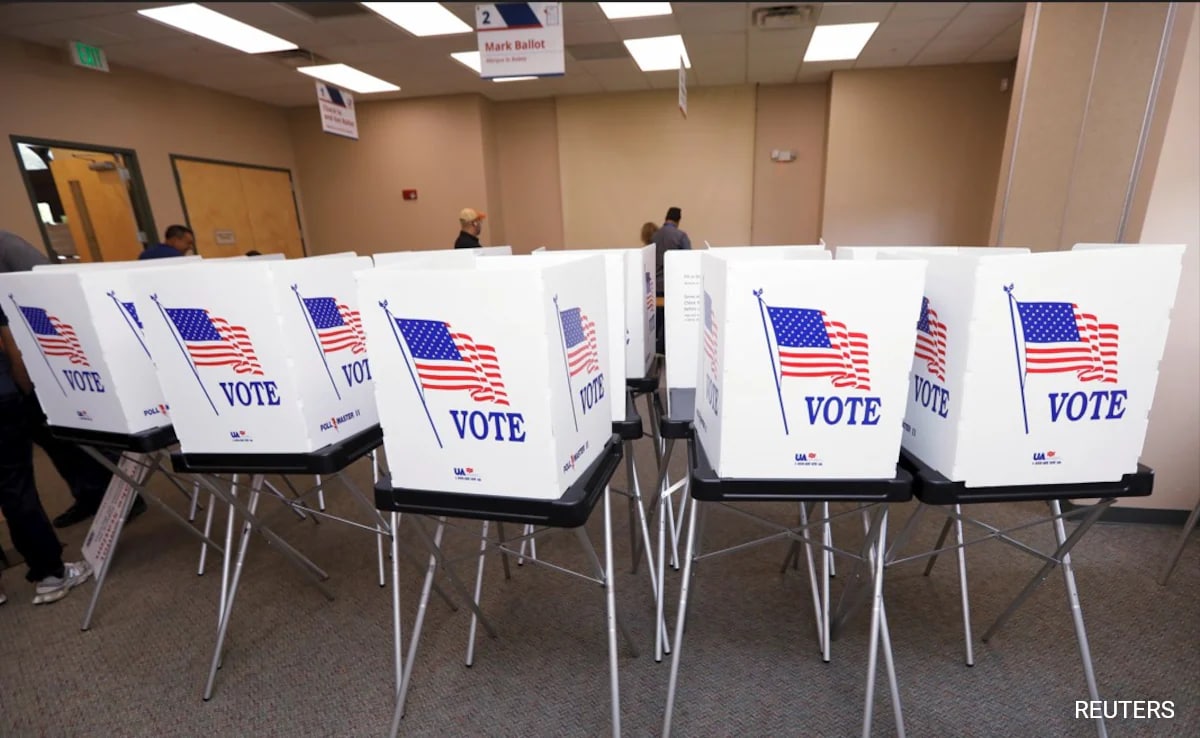
Washington:
Abortion rights are arguably the single-most important issue in the US ahead of the presidential election on November 5. It affects 50 per cent of the US population and is a matter of an individual’s fundamental liberty, which is protected by the Fourteenth Amendment of the US Constitution.
During his term as President, Donald Trump reshaped the Supreme Court, which in 2022 left the states to decide their own abortion policies by overturning Roe vs Wade, the federal guarantee of abortion access – and thus dismantling five decades of precedent protecting abortion rights across the US.
Now, at least ten states in the US are holding referendums on the issue of abortion, and the questions on it will appear on the same ballots used to cast the vote to select the next US President.
This is the first US presidential election to be held after access to abortion was banned or restricted across much of the US following a landmark Supreme Court ruling.
The outcome could have profound implications, with the potential for restrictions affecting tens of millions of women to be overturned. Democrats also hope that the issue will mobilise a broader swath of the electorate in their favor.
In recent times, women in the US are being forced to cross state lines to terminate their life-threatening pregnancies. “This is a health care crisis, and Donald Trump is the architect,” Kamala Harris has said.
THE REFERENDUMS
According to the Fourteenth Amendment of the US Constitution, “All persons born or naturalized in the United States, and subject to the jurisdiction thereof, are citizens of the United States and of the State wherein they reside. No State shall make or enforce any law which shall abridge the privileges or immunities of citizens of the United States; nor shall any State deprive any person of life, liberty, or property, without due process of law; nor deny to any person within its jurisdiction the equal protection of the laws.”
With the referendums in November, each constitutional amendment will enshrine state-level reproductive rights, which were undermined by the US Supreme Court’s 2022 ruling which led to restrictions on abortion access.
Among the states that have been affected by the US Supreme Court ruling which has made abortions restrictive, Arizona, Florida, Missouri, Nebraska, and South Dakota are holding referendums.
As of now, the other states that are holding the vote on abortion rights are Colorado, Maryland, Montana, Nevada, and New York.
WHAT IT WILL MEAN FOR THESE STATES
-
ARIZONA – In the state of Arizona, which is a crucial swing state, abortion is currently limited to 15 weeks of pregnancy. Democrats hope referendum would bolster their chances of winning this key battleground state. Proposition 139, which is all but sure to be adopted, would protect abortions until the point of fetal viability.
-
FLORIDA – This is the third-most populous state in the US. Currently abortion in the state is banned after six weeks of pregnancy. This is so short a period of time that women often know of their pregnancy only after this time. Voters will on November 5 choose whether to extend that time until the point of fetal viability, which is about 24 weeks of pregnancy. The proposed amendment must receive 60 per cent of the votes cast in order to pass. A recent poll indicated that 55 per cent of Floridians support it, and 20 per cent are “not sure.”
-
MISSOURI – The midwestern state of Missouri has one of the strictest abortion bans in the United States, with no exceptions even for rape or incest. The referendum proposes to allow abortion until fetal viability in the traditionally Republican-leaning state.
-
NEBRASKA – This is state, abortion is legal until 12 weeks. It is the only US state which will vote on two competing propositions. One would establish a “fundamental right” to abortion until fetal viability, while the other would ban it after the first trimester (13 weeks). The winning amendment will require 50 per cent of the vote, and more votes than the competing initiative.
-
SOUTH DAKOTA – South Dakota has a similar abortion ban to Missouri, with the procedure allowed only to protect the life of a mother. Voters will now decide whether to reestablish the right to abortion during the first trimester.
-
COLORADO – Colorado is among a handful of states where abortion is legal without a gestational limit. A citizen-led initiative now proposes to constitutionally protect the right to abortion in the Democratic-led state.
-
MARYLAND – Maryland voters will decide whether to amend their constitution to enshrine the right to abortion until fetal viability.
-
MONTANA – Abortion is legal in Montana, traditionally a conservative state, until fetal viability, despite legal efforts to restrict access that have been blocked by judges. The proposed amendment would enshrine existing reproductive rights in the state’s constitution.
-
NEVADA – Voters in the western state of Nevada, where abortion is legal until fetal viability (24 weeks), will choose whether to enshrine the right in the state constitution.
-
NEW YORK – Lawmakers in New York have submitted an amendment to further bolster abortion access, which is already legal until fetal viability, by including anti-discrimination protections for reproductive healthcare.









